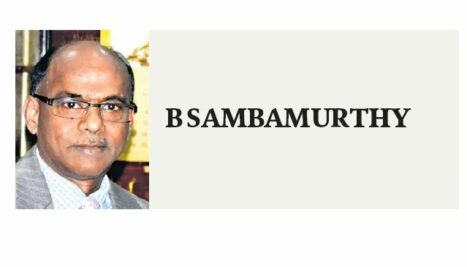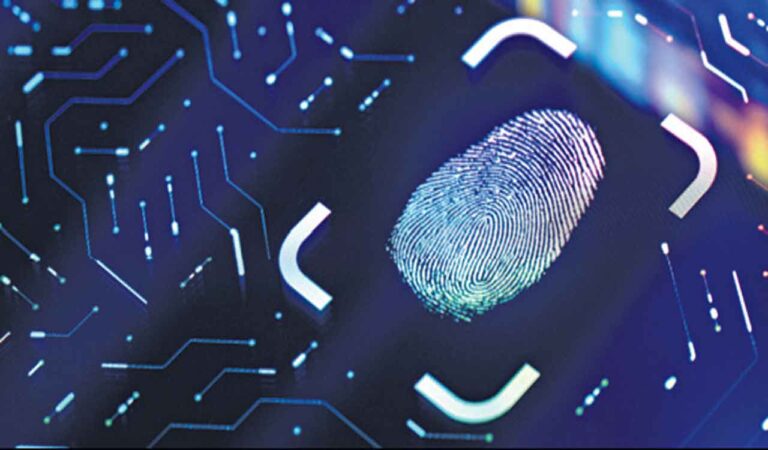Post Date: Post Date – 12:19 AM, Thursday – October 27th

Governments must tame surveillance capitalism to preserve democratic order and foster a thriving digital society
by B Sambamurthy
Decades ago, data from the past was considered data waste and needed to be dumped in the trash to save on high electronic storage costs. We’ve come a long way since then. Gold dust (powerful insights into users) has been discovered from data exhaustion due to advances in data science and increased computing power and falling costs. Amit Patel’s work at Google is credited with leading to the discovery of data gold. Gather actionable and profitable insights from your digital footprint. As they say, the rest is history.
Google, Meta, Twitter, WhatsApp, Instagram, Apps, IoT and Gadgets, etc., have been at the forefront of this digital revolution. Hundreds of thousands of data points, data logs, digital footprints of individuals and groups flood into powerful computing factories to build “predictive” products and sell them to other companies/organizations for profit in what’s called a human futures market. This has brighter and darker connotations.
The bright side of big data
The first is the bright side of data science. New business and operating models are innovated, supported by data science and new computing tools. It started a good development with the noble purpose of improving service and product quality. With machine learning and AI-assisted big data analytics, customer experience shines.
Service delivery has improved significantly in areas such as healthcare, financial services, hospitality, e-commerce, and more. Customer service has become convenient, frictionless, faster, cheaper and somewhat secure. Online and real-time are the mantras. So far, so good.
Predictive maintenance, self-healing systems, and intelligent resource management increase productivity and efficiency. Created a perfectly describe-predict-prescribe value chain.
dystopian world
Now let’s look at the dark side of their operations and business model. When we search for information on Google, Google also searches for information about us – our interests, habits, likes, thoughts, preferences, etc. As we interact with friends and relationships on Meta, it pulls in our likes, dislikes, social and not only our own political views, but also the political views of others on the team. The same goes for Twitter and other social media platforms.
When we download apps, we have limited or unlimited access to our contacts, message boxes, call logs, and their trackers and cookies following us relentlessly. These operating models show that data extraction beyond the need to improve services is at the center of both problems and opportunities. This leads to surveillance (without the user’s knowledge) capitalism.
surveillance capitalism
Industrial capitalism is the appropriation of land, labor, capital and other resources to produce goods/services and sell them for profit. Surveillance capitalism is the misappropriation of user/citizen data and turning it into a predictive product, without the user’s knowledge and informed consent, and selling it for profit. This business model is what Big Tech/FinTech is after. They have started selling this data to digital advertisers and have now expanded into other areas including political campaigns.
In her international bestseller on surveillance capitalism, Professor Shoshana Zuboff reveals their hidden (some call dark) business models. She hates bringing private experience to market for sale, and demands regulation of this new evil form of capitalism. Regulators need to adhere to a robust and transparent governance model to manage excess conduct – a potential source of mischief and abuse.
Anthropological surveillance
Cambridge Analytica (CA) takes monitoring to new depths. It extracts data from multiple sources and segments people based on personality traits by deploying the OCEAN model (Openness, Conscientiousness, Extraversion, Agreeableness, and Neuroticism). The model helps them predict what voters are likely to do in an election and then manipulate their emotions to oppose or support a particular party. The model was reportedly successfully used in the 2016 US presidential election. Although CA is closed, many countries are deploying this model to manipulate voter sentiment. This, combined with fake news and misinformation, is known to divide societies. This is the worst dystopia.
Furthermore, gadgets and apps are voracious data collectors, with artificial intelligence (AI) connecting them all to build individual, psychological, social, health and financial profiles at the individual and group level. Most of them are beyond the user’s awareness and are plagued by spying.
Taming Surveillance Capitalism
Left unchecked, surveillance capitalism and data colonialism can undermine democracy and social stability, which in turn affects economic development. This task is beyond the scope of a technician. We need to combine computational science with social and political science, especially several branches of anthropology such as social psychology, philosophy, ethics, civil rights, behavioral science, linguistics, and geography. Technological ethics cannot be different from social, political and economic ethics.
We need data privacy and protection laws to tame surveillance capitalism without stifling innovation. Aside from national security concerns, both governments (state surveillance) and big tech companies need to be governed by the same laws, while demonstrating our preference for a market economy.
information capitalism
“If the service is free, you are the product” is a cliché, referring to the so-called free services of social media platforms. This is not correct. User data is the raw material for these companies, which accumulate it into behavioral surplus and build predictive products and sell them in “human futures markets.” This is barter trade. According to Gillian Tett in ‘Anthro Vision’, barter is the backbone of the modern tech economy. Economists and antitrust policymakers need to address this issue.
monopoly
Competition law based on the Bock principle, namely price fixing and price manipulation, does not work in a techno-barter economy where prices are invisible. The law needs to protect all stakeholders. They need to fight the new incarnation of monopoly, the monopoly (a market with only one buyer). The ONDC (Open Network for Digital Commerce) driven by India’s Soft Start Protocol aims to reduce this risk.
Samaj, Sarkar and Bazar
India has successfully digitized its welfare system to a scale of billions. Public interest and interoperability are fundamental to India’s model of public policy. This policy is driven by technology, not the other way around like in other countries. It has helped India achieve great success on Aadhaar, UPI, CoWIN, DBT etc and hopefully ONDC. We need to strengthen this model to build a safe and prosperous digital society. Our private sector misses the 10x product bus, but it’s never too late to innovate products.
Politicians need to realize that DBT is not a substitute for building social infrastructure in areas such as education, healthcare, agriculture, etc. We need laws, regulations, and governance models to tame excess behavior and all kinds of oversight. It’s not just the privacy of some odd transaction or metadata that is at risk, but personal beliefs, conversations, social, religious and political beliefs and preferences, and more. Purpose limitations, time limitations, consent, etc. – these issues need to be addressed in the proposed legislation.
Freedom of expression, open innovation, social and democratic order, national security and consumer/citizen protection must be the guiding principles. Legislation is late, but not too late.

(The author is a former director and CEO of IDRBT who helped build a data science lab in the financial sector, no-monitor models. bsmurthy123@hotmail.com)
